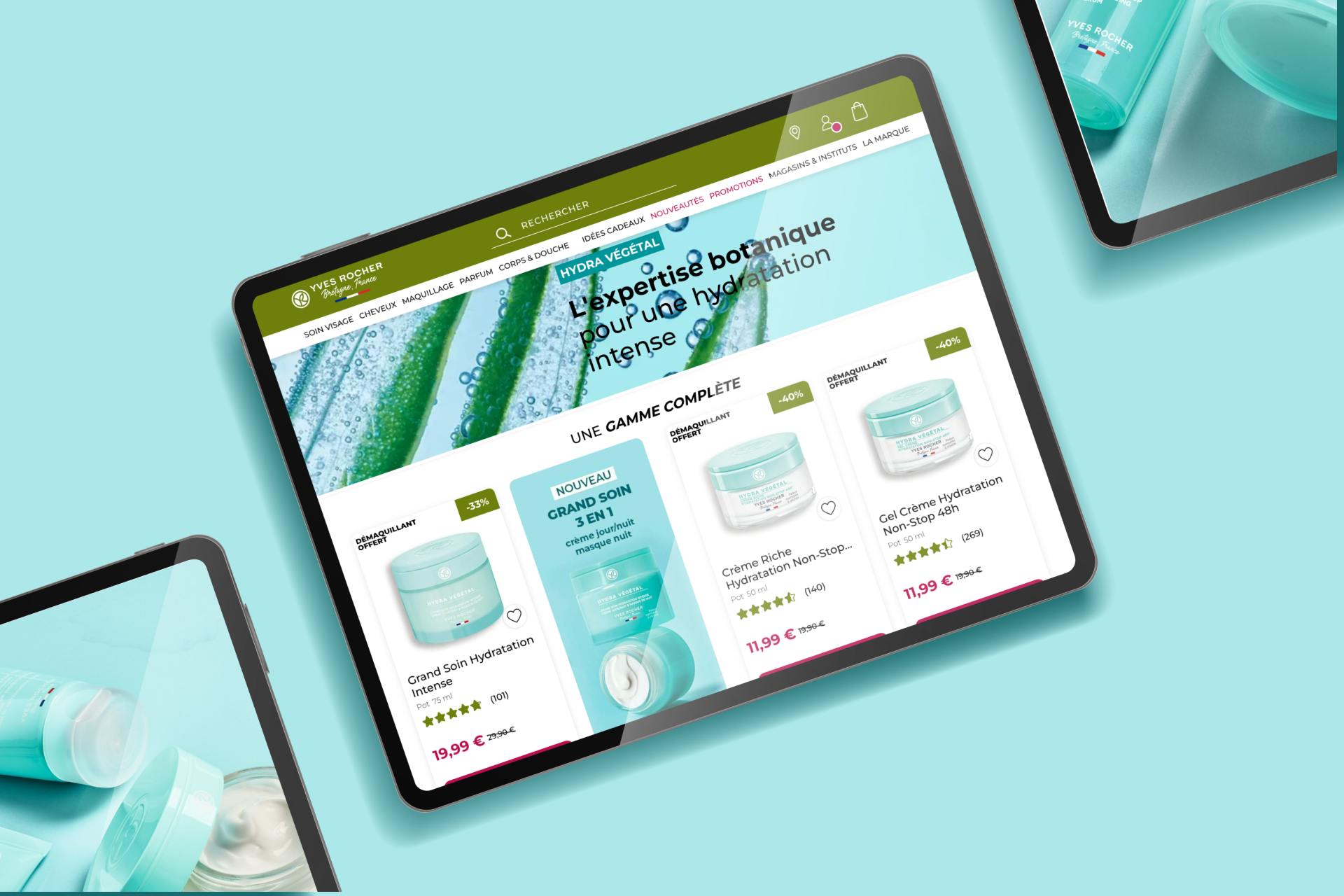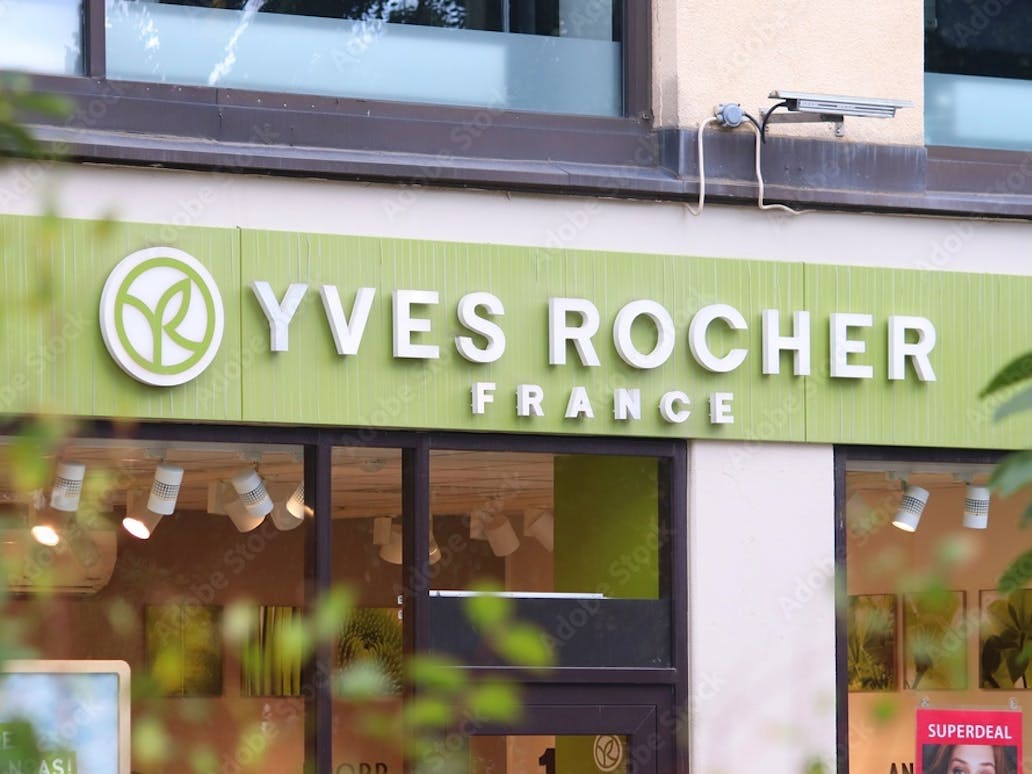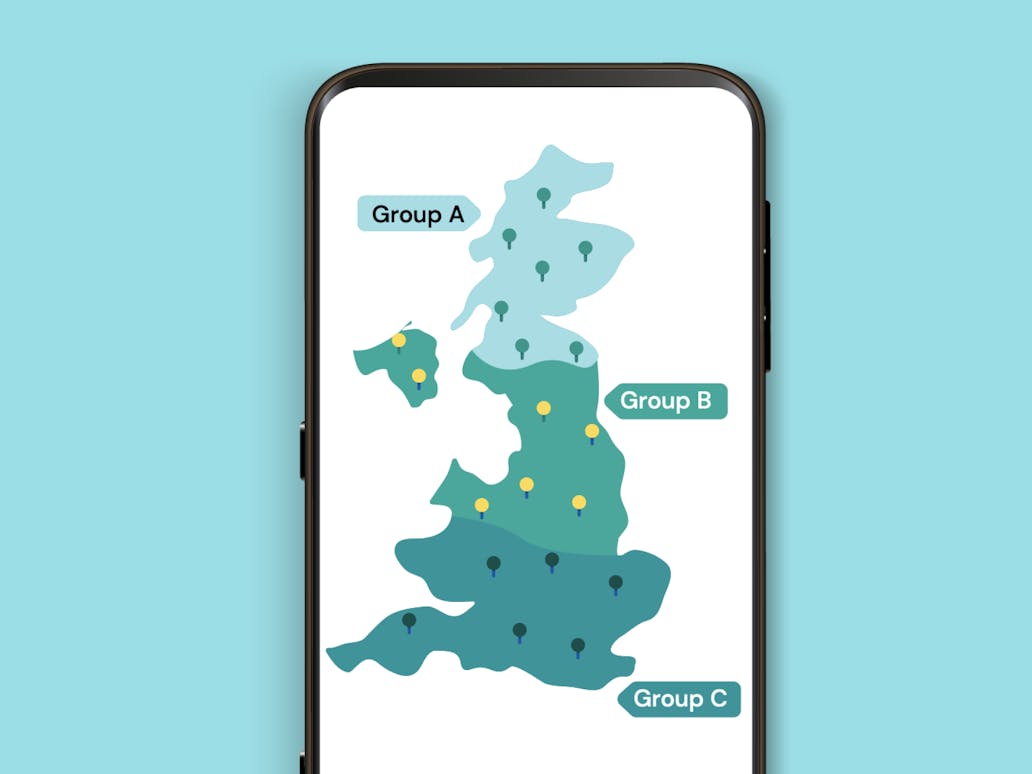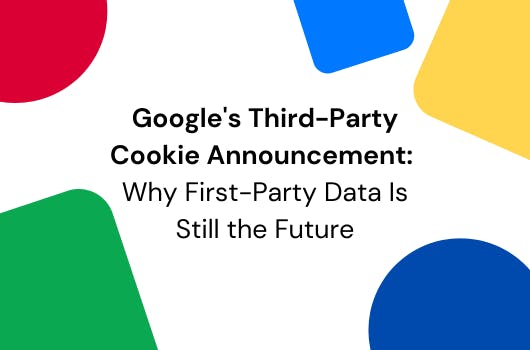success > Yves Rocher
Measuring incrementality to manage Meta campaigns
Discover how Yves Rocher embraced incrementality in order to take the right decisions while respecting new privacy standards.
Discover how Yves Rocher embraced incrementality in order to take the right decisions while respecting new privacy standards.


Yves Rocher is a sustainable cosmetics brand, globally renowned for its botanical-infused products including skincare, makeup, and fragrances. In April 2023, Yves Rocher launched a powerful media campaign to promote its Hydra Végétale collection.

Yves Rocher had been investing a lot in digital, particularly on the Meta platform, to drive in-store purchases.
Since the beginning of the year, Jellyfish and Yves Rocher have adopted a strong measurement approach - placing incrementality at the heart of success indicators.
Jellyfish's Data Science team worked closely with Yves Rocher's Data teams to develop and validate a robust measurement protocol that would answer two pivotal questions.
One of the requirements was to adopt a universal methodology, compliant with all programmatic channels (online and offline), while being able to verify all hypotheses, from channel impact to audience in-platform activation.
In collaboration with Yves Rocher and Meta Marketing Science teams, Jellyfish defined a reliable and privacy-safe measurement protocol.
The Meta Data Science team supported the project by sharing insights and opinions. Jellyfish experts acted as an unbiased third-party to ensure that the results were reliable.
Using the latest Geolift research, Jellyfish designed and implemented a multi-dimensional lift study for the Yves Rocher Hydra campaign:
All three groups complied with strict statistical rules and a rigorous set-up, ensuring their reliability and impermeability. Geo areas were selected based on their representativeness, in order to guarantee results significance.
The Geolift research (with the comparison of the three groups) confirmed Meta’s incremental impact. Thanks to Geolift, Yves Rocher was able to confirm the necessity of running ads on Meta, to drive revenue but also new customer acquisition.
A three-way collaboration that confirmed Meta's impact on our business, using a methodology that is as close as possible to our CRM incremental studies.
Caroline DELAUNAY, Head of Data Science, Yves Rocher

Geolift is Meta's open-source solution used to measure Lift at a geographic level. This methodology leverages the latest developments in Synthetic Control Methods (SCM) to generate geographic quasi-experiments that measure the true incremental value of your marketing campaigns.
Geolift is a really robust system but this method can be expensive and time-consuming. Another way of getting similar results is to look at audiences using Meta’s conversion lift tool.
However, Yves Rocher was unsure of how this data was structured and whether or not the results were reliable. Jellyfish compared the Geolift results with the one from Meta’s conversion lift (used during the same test).
The results were identical across all three monitored KPIs: revenue, transactions, and new customers, proving that the data provided by Meta is reliable, and that conversion lift studies could be part of their testing roadmap.
Thanks to this validation, Yves Rocher will now be able to run studies with much more flexibility and granular hypotheses.
The next action identified is to use conversion lift to understand how campaigns on Meta contribute to search traffic evolution and assess the impact of upper funnel activities on customer behavior.
This study has had a significant impact on marketing effectiveness at Yves Rocher as it allows their media and data teams to:
- validate the incremental impact Meta’s solutions have on their business
- understand how Meta’s solutions positively influence their online and offline sales
- validate Meta’s Conversion Lift protocol precision
- define a new testing roadmap on Meta with a more granular hypothesis
Impact on revenue, transactions, and new customers
New customers were recruited thanks to the Hydra campaign on Meta
lift measured across both online and offline sales

For today’s marketers, the challenge is making your data work smarter, faster, and more effectively. That’s where CAPI (Conversions API) can make all the difference. So, why aren’t more brands leveraging CAPI? Eb Adeyeri, our VP of Paid Social & Partnerships, explores this for AdExchanger, highlighting the risks for brands that delay its adoption and the opportunities for those who take action now.
Read Article
Ellos, a leading online home furnishings and fashion retailer in the Nordic region, faced the challenge of optimizing their ad spend while driving higher market share amidst increased competition and economic pressures.
See Case Study
In a (not so) surprising turn of events, Google announced that it would not be deprecating third-party cookies as planned. This decision sent ripples through the digital advertising and marketing industries, leaving many advertisers wondering about the implications for their data strategies. Despite this unexpected move, here at Jellyfish, we still believe in the importance of investing in first-party data, and server-side tagging remains as critical as ever.
Read Article